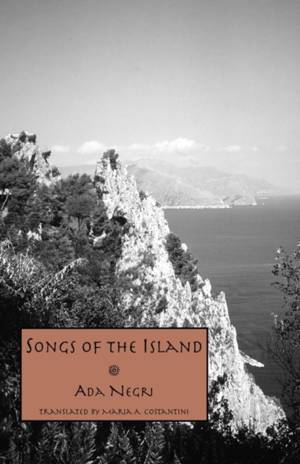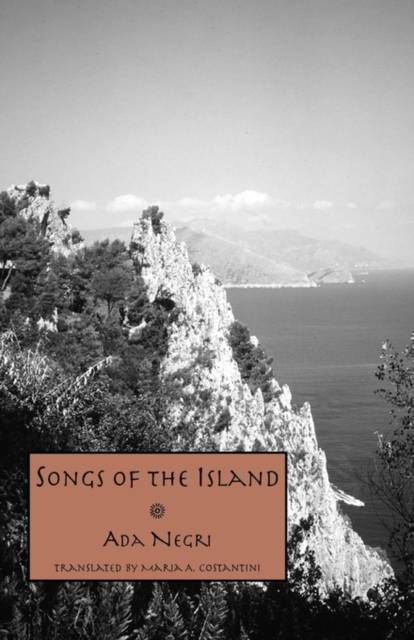
Bedankt voor het vertrouwen het afgelopen jaar! Om jou te bedanken bieden we GRATIS verzending (in België) aan op alles gedurende de hele maand januari.
- Afhalen na 1 uur in een winkel met voorraad
- In januari gratis thuislevering in België
- Ruim aanbod met 7 miljoen producten
Bedankt voor het vertrouwen het afgelopen jaar! Om jou te bedanken bieden we GRATIS verzending (in België) aan op alles gedurende de hele maand januari.
- Afhalen na 1 uur in een winkel met voorraad
- In januari gratis thuislevering in België
- Ruim aanbod met 7 miljoen producten
Zoeken
Omschrijving
Toward the end of March 1923, the Italian writer Ada Negri, who already had an international reputation for her frank and passionate poetry, enjoyed a brief holiday in Sicily. From there she went to the island of Capri, where she stayed for about a year and wrote "Songs of the Island." Her lyrics of Capri, full of sun, blueness and the perfume of oriental roses, are like a seashell: magical, polyphonic in their infinite melodiousness. These poems represent a sort of parenthesis in Negri's work. They are the result of the blinding light of the island, the ardor of a holiday both physical and spiritual. In the words of one critic, they embody "the magic of the tangible and the flashes of invisible reality," and symbolize the poet's hour of quiet and reflection on her path thus far. Via the impressionistic sweep of these images, the poet transports us with Capri's explosion of light and color. Enchanted by pearls, amethyst and jade, the mythological sea of Ulysses, the unstoppable bleeding of poppies, climbing purple roses, and the castaways of dreams, the reader wants to be seduced, if only for a moment, by this world of the senses. Yet, as if fraught with guilt, through the poet the human spirit aspires to a higher self. First English translation, by Maria A Costantini. Dual-language edition. Introduction, bibliography, map, glossary. 162 pages.
Specificaties
Betrokkenen
- Auteur(s):
- Uitgeverij:
Inhoud
- Aantal bladzijden:
- 164
- Taal:
- Engels
Eigenschappen
- Productcode (EAN):
- 9781599101668
- Verschijningsdatum:
- 9/12/2010
- Uitvoering:
- Paperback
- Formaat:
- Trade paperback (VS)
- Afmetingen:
- 140 mm x 216 mm
- Gewicht:
- 213 g

Alleen bij Standaard Boekhandel
+ 54 punten op je klantenkaart van Standaard Boekhandel
Beoordelingen
We publiceren alleen reviews die voldoen aan de voorwaarden voor reviews. Bekijk onze voorwaarden voor reviews.









